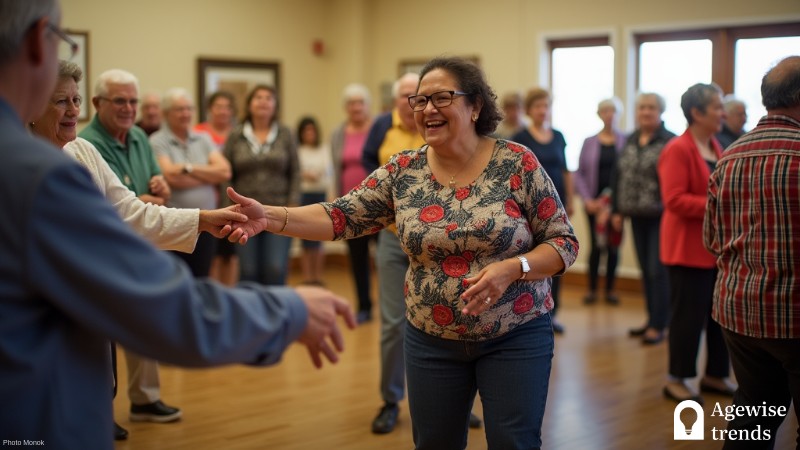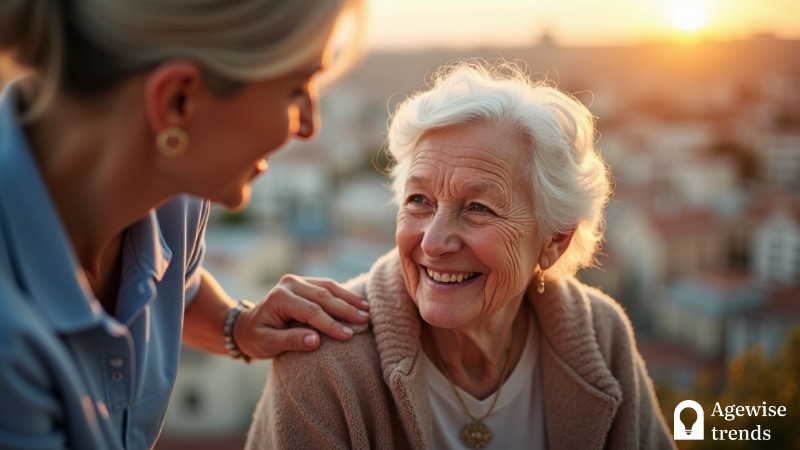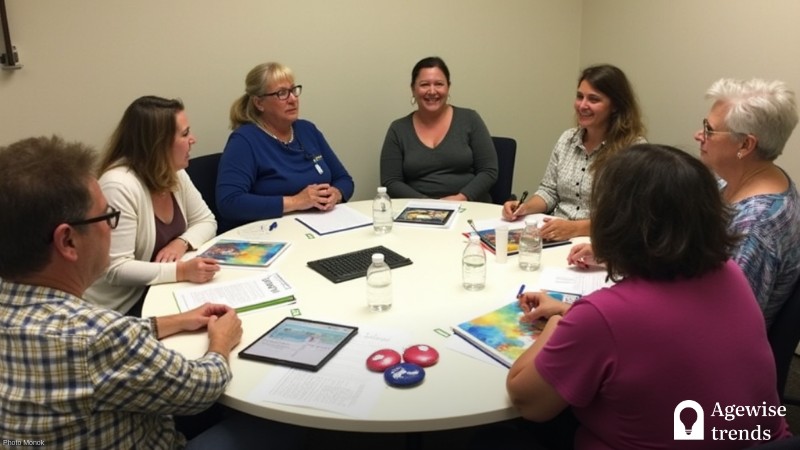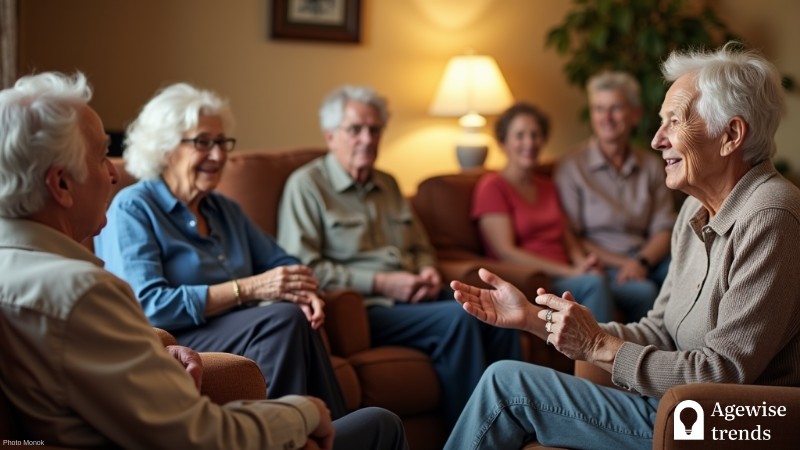At the Anchorage Senior Activity Center, there’s a new program bringing Latin American seniors together. It’s called “Encuentro de Hispanos” (Meeting of Hispanics), organized by Ninetta Regalado, who’s originally from the Dominican Republic. This program helps seniors connect by chatting in Spanish while enjoying music, dancing, and conversation.
On February 11th, about twenty seniors, all 55 and older, came to the center for the first meeting. The atmosphere was friendly and lively with merengue music, getting many to dance. The event was a rare chance to meet others with similar backgrounds. This bi-monthly program wants to create a warm space for Latino seniors to find friends and feel connected.
The event started with coffee and pastries, making it easy for everyone to start chatting. Long tables, decorated with flowers and heart-shaped wreaths, set a Valentine’s mood. As music played, seniors from several countries like Mexico, Colombia, Guatemala, and more, shared stories and cultural experiences.
For many, this event was a big step in reducing loneliness. Feeling lonely can badly affect health, bringing risks like heart disease and dementia. The CDC says seniors who feel isolated are 50% more likely to develop dementia. Latino seniors in Alaska face even more challenges due to language barriers and limited culturally sensitive services.
Key Takeaways
A new program called ‘Hispanic Gathering’ is connecting Spanish-speaking seniors in Anchorage through music, dancing, and conversation.
- The bi-monthly event helps reduce loneliness among Latino seniors by providing a culturally sensitive space for social interaction.
- Participants range from their late 50s to early 90s and come from various Latin American countries, sharing stories and cultural experiences.
- Organizers plan to expand the program with more resources and activities, including virtual participation options.
Addressing isolation through cultural connection
The idea for “Encuentro de Hispanos” came from Regalado’s own life. After retiring from social services, she saw that Spanish-speaking seniors in Anchorage needed more programs. The Anchorage Senior Activity Center has many activities, but none specifically for Latinos. Regalado wanted to create a place for seniors to connect with others and embrace their culture.
Before the program was official, Regalado hosted small meetings in her living room. These helped start the larger program now supported by the Anchorage Senior Activity Center and Enlaces AK, a local nonprofit. The center offers the space, and Enlaces AK helps with transportation, so seniors from all over Anchorage can join.
Participants, aged from their late 50s to early 90s, have diverse backgrounds. Some have been in Anchorage for years, building families and careers, while others are newer to the area. All face aging challenges like less mobility, health issues, and feeling lonely.
Bertha Emelia Preciado, 86, has been in Alaska since 1970 and is thankful for the program. At the February event, she put aside her cane to dance, inspiring others to celebrate their shared culture with her joy.
These gatherings give more than just fun for people like Preciado—they bring meaning and connection. She said, “Everyone has something to learn and share,” highlighting the program’s focus on helping and engaging with the community.
Building a supportive community
The February event had several activities for fun and growth. People danced, shared life stories, and listened to a motivational talk about self-love and empowerment. It ended with the giving of Valentine’s Day gifts, making the day warm and festive.
Blanca Salazar, 73, moved from Mexico to Anchorage in 1996, found the event uplifting. A church friend invited her, and though she wasn’t sure what to expect, she quickly felt at home. By the end, she exchanged phone numbers with someone from Colombia and looked forward to the next meeting.
Salazar stressed how important it is for older adults to freely express themselves. “This group is great, especially for people my age to be around similar people,” she said. Her husband, Frank Salazar, a retired executive chef, was the only man there. His presence showed the program welcomes anyone looking for community and connection.
Another attendee, Xiomara Díaz Perez, moved from Cuba six years ago to be with her son’s family. Living alone often leaves her feeling isolated, so “Encuentro de Hispanos” provides a valuable way to meet new friends and maintain emotional health.
Regalado hopes the program will grow to meet the various needs of Anchorage’s Latino seniors. She encourages participants to keep in touch outside of meetings, whether through coffee dates or online. By building ongoing relationships, the program helps prevent loneliness among seniors.
The Anchorage Senior Activity Center is dedicated to supporting these culturally specific programs. Public relations director Celine Kaplan mentioned that, although they do not currently provide multilingual programming, they are open to hosting initiatives like “Encuentro de Hispanos” that cater to diverse senior groups.
Final thoughts
Looking ahead, Regalado plans to expand the program with more resources and activities. She is considering virtual participation for seniors with mobility issues or those in remote areas. This could improve accessibility, ensuring no one is left out.
The program’s success shows the importance of culturally sensitive community activities in promoting mental health and social well-being. Providing a welcoming space empowers Latino seniors to celebrate their cultures and connect with others.
As Anchorage’s population grows more diverse, such programs become vital in creating an inclusive society. For seniors facing aging, language challenges, and cultural changes, “Encuentro de Hispanos” offers both friendship and a renewed sense of belonging.
The next meeting is already being planned, with both organizers and participants eager to continue building a supportive community. Regalado is optimistic, believing these gatherings will keep making a positive difference in Anchorage’s Latino seniors’ lives. Through dance, conversation, and shared experiences, the program highlights the strength of community and cultural bonds.














